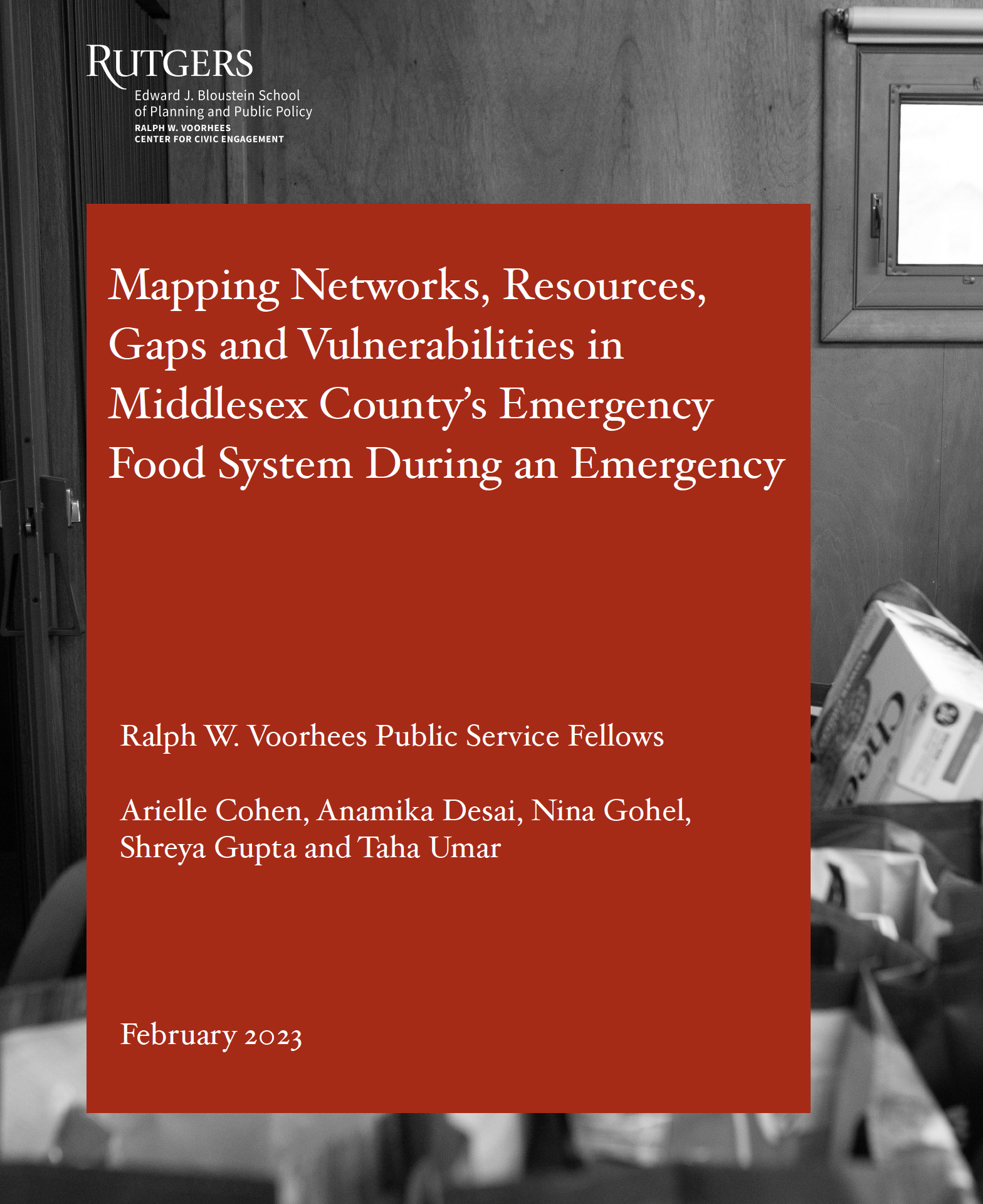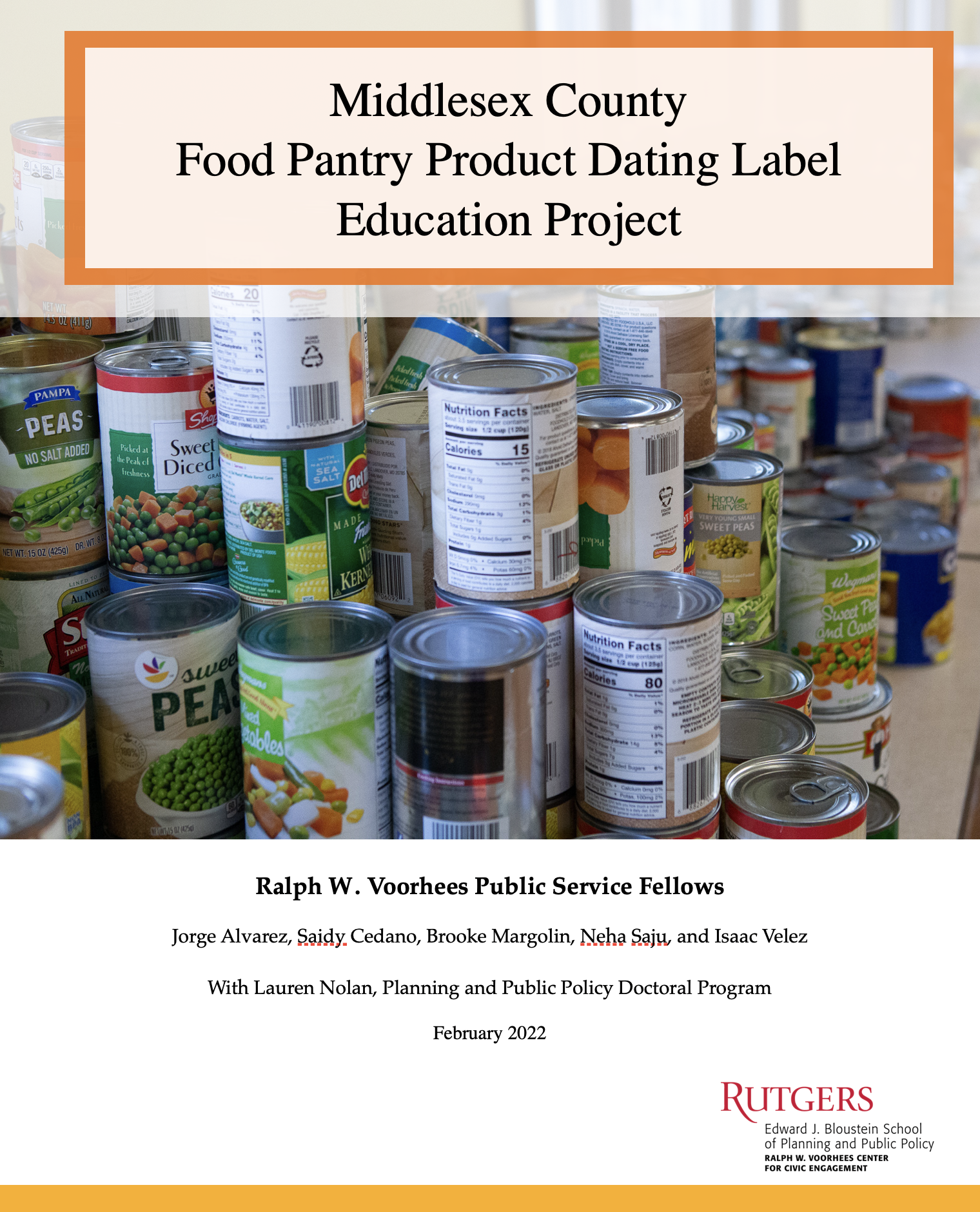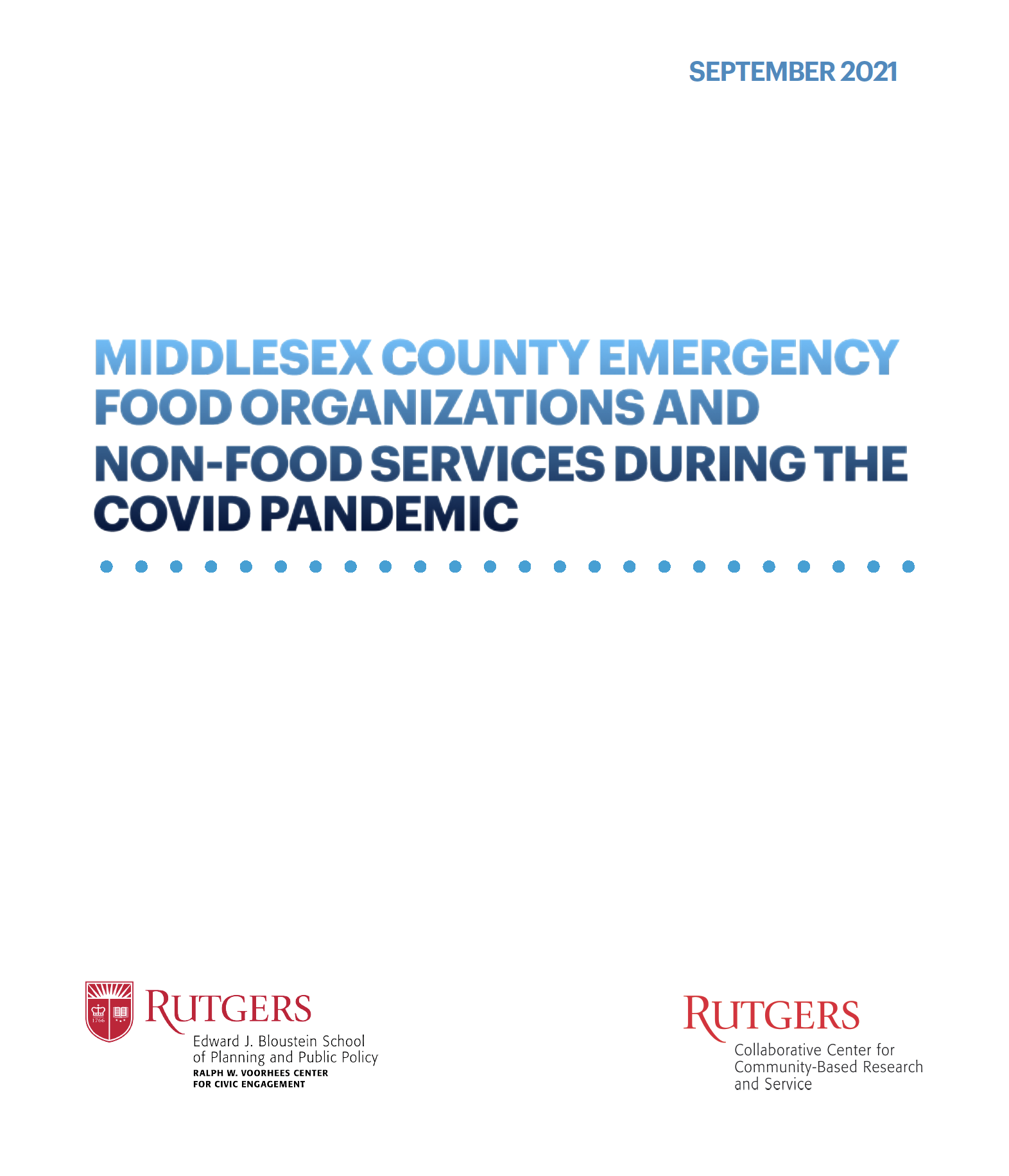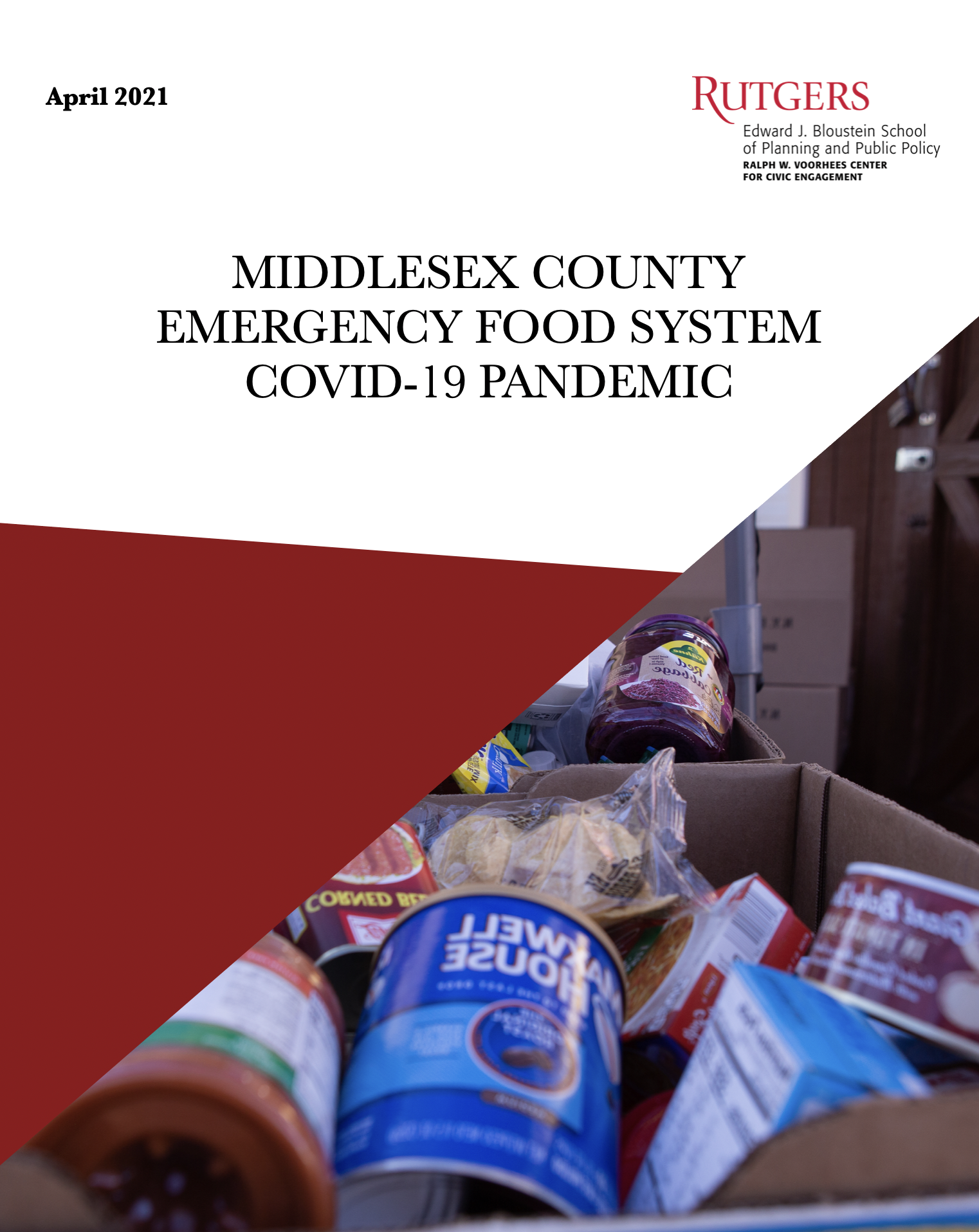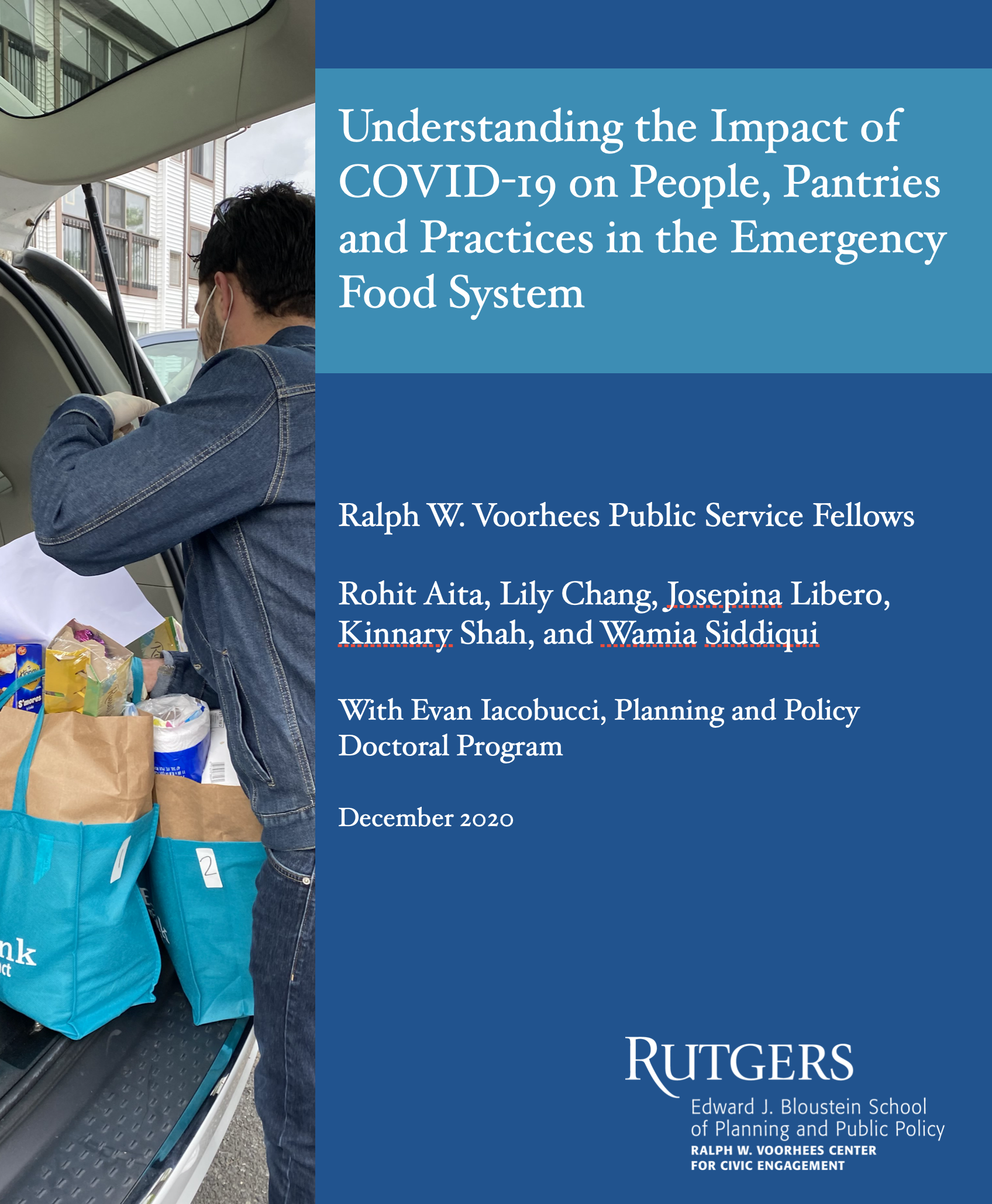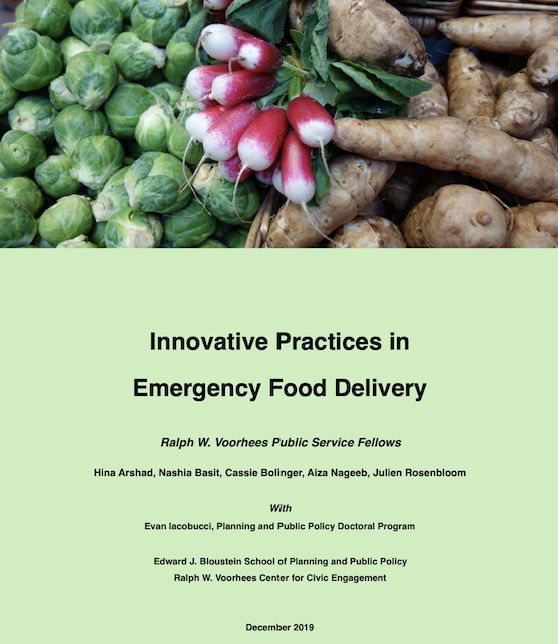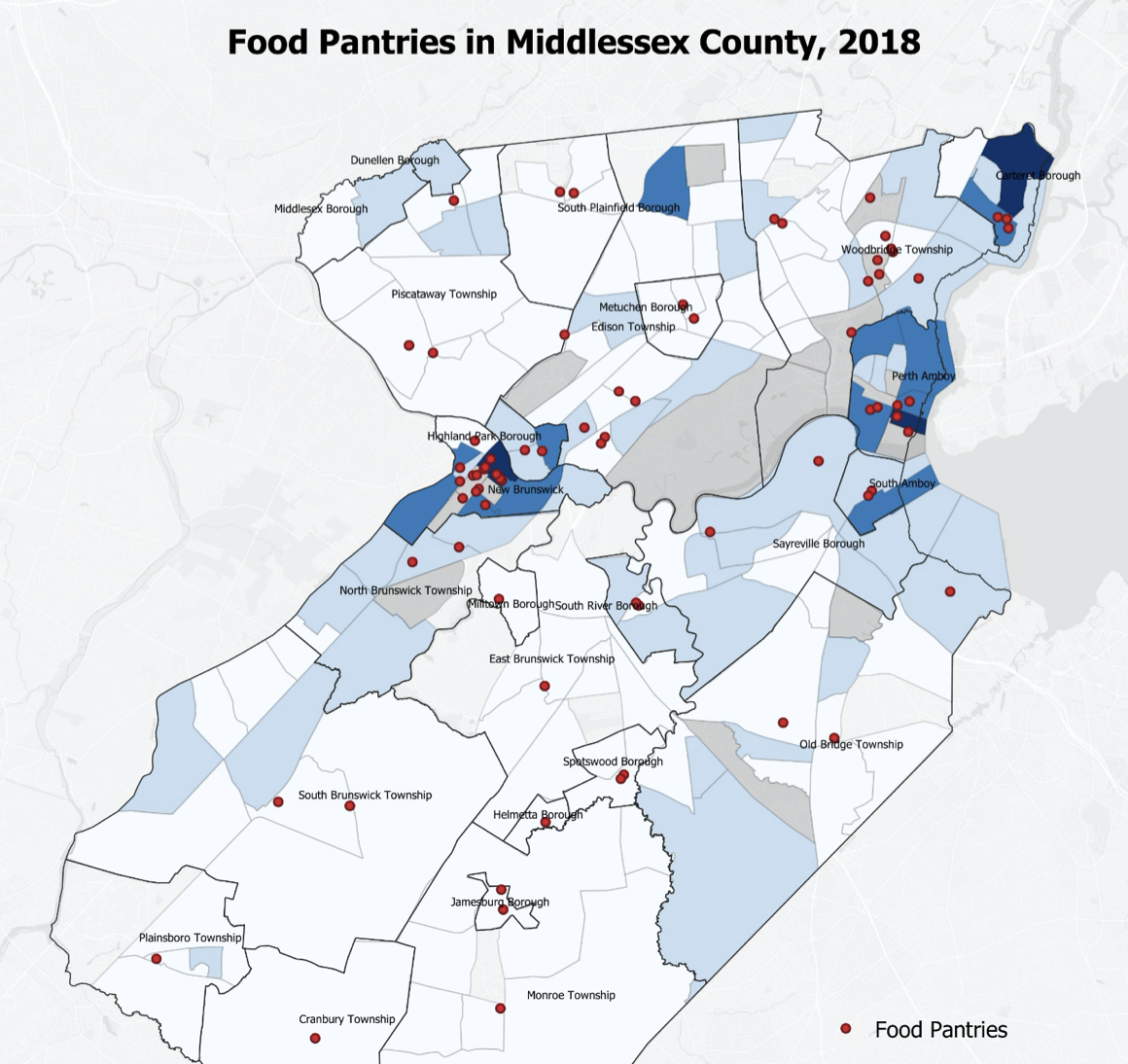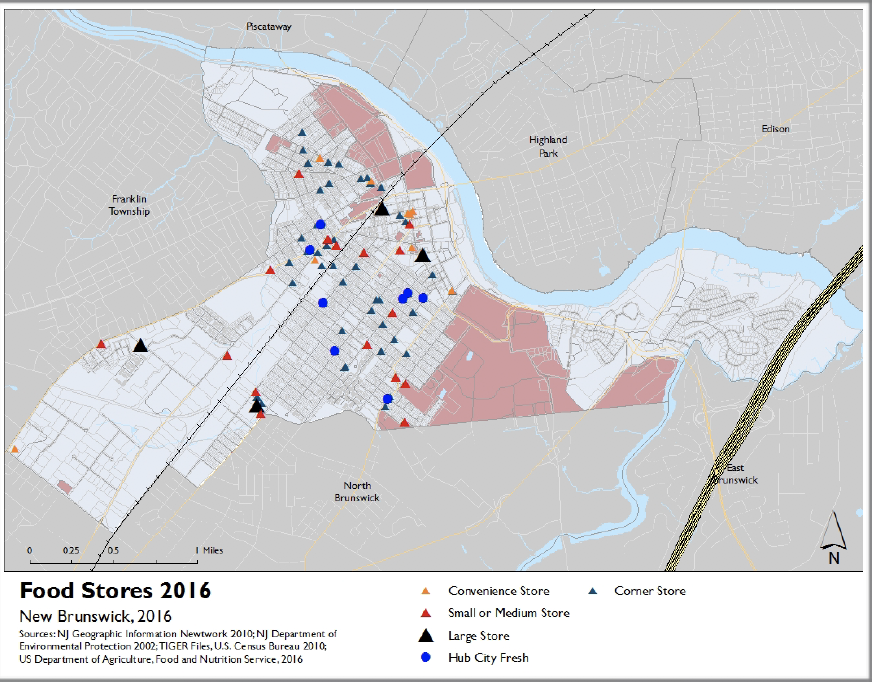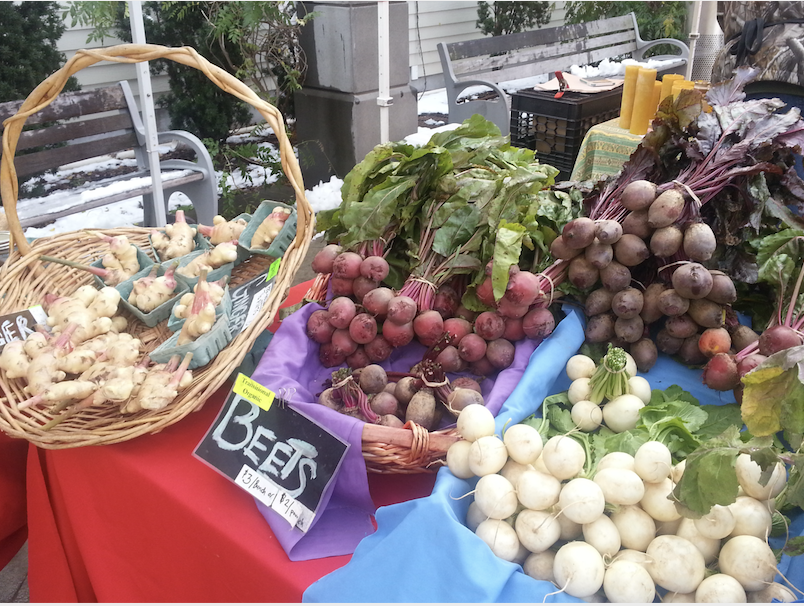Food Security
Land and Value
Housing
Food Security
Mapping Networks, Resources, Gaps and Vulnerabilities in Middlesex County’s Emergency Food System During an Emergency
This report examines the networks, resources, gaps, and vulnerabilities in the County’s emergency food system. The objective of the project was to better understand to understand how food pantries and food banks are affected during emergencies to ensure that people can access and receive food in a crisis. The following questions guided the research design, findings, and recommendations: 1. Who do emergency food actors network with, and what is their relationship with municipal county, and state governments? 2. What emergency plans do they have in place? 3. What challenges did they face and relationships did they form during recent environmental and public health emergencies? 4. What do they need to strengthen to prepare for future emergencies?
Middlesex County Food Dating Label Education Project
This report analyzes the ways in which individual pantries throughout Middlesex County interact with food product date labels, food waste, staff and client education, and the impact that COVID-19 has had on those topics. This project has two main objectives: (1) understanding what practices food pantries in Middlesex County currently have in place regarding food waste and past date items, and (2) exploring ways in which to increase education around date labels and reduce food waste.
Middlesex County Emergency Food Organizations and Non-Food Services During the Covid Pandemic
In partnership with the Rutgers University Collaborative Center for Community-based Research and Service, and REPLENISH, the Middlesex County Food Bank, this report offers some insight about the non-food challenges that pantries confronted during the pandemic, how pantry staff navigated the demand for these services during the pandemic through July of 2021, and it provides some idea about the type of information that might be useful to pantries moving forward.
Middlesex County Emergency Food System Covid-19 Pandemic Report
This report examines how emergency food providers in Middlesex County, New Jersey, changed their practices during the pandemic. The report looks at how food pantries navigated challenges related to food demand, supply, and distribution, and highlights the experiences of individual pantries.
Understanding the Impact of COVID-19 on People, Pantries and Practices in the Emergency Food System
The COVID-19 pandemic has had a profound impact on the emergency food system, challenging a system that was already operating with few resources. Food pantries developed strategies to meet surging need while navigating COVID-19 safety challenges and dramatic shifts in food supply. This report investigates how a set of food pantries in Metuchen and Edison, New Jersey, adapted to these circumstances. Our project has two main objectives: 1) Explore how food pantries in the Metuchen and Edison area that are part of the Metuchen Edison Assistance League (MEAL) coalition, modified their practices during the pandemic. 2) Share how pantries have responded to support their work into the future. These objectives are guided by three main research questions:
- How has COVID-19 impacted the emergency food system?
- How are food pantry directors helping to mitigate these effects currently?
- What new actions can food pantry directors implement to help mitigate these effects?
Innovative Practices in Emergency Food Delivery
Ralph W. Voorhees Public Service Fellows Hina Arshad, Nashia Basit, Cassie Bolinger, Aiza Nageeb, Julien Rosenbloom with Evan Iacobucci, Planning and Public Policy Doctoral Program. During the Fall 2019 semester, Middlesex County Food Organization and Outreach Distribution Services (MCFOODS), Unity Square community organization, and other partners engaged the Ralph W. Voorhees Fellows to research innovative food pantry practices. We focused on pantries
that enable clients to choose their own food and pantries that use technology to improve operations. In the course of this research, two fundamental questions guided our methodology, analysis, and recommendations:
- How do food pantries address enduring tensions to provide food that best meets the needs of people in the communities they serve?
- What innovative practices do they employ to do so?
Food Insecurity in Middlesex County
Riley Link, Curtis McDaniel, Daniel Rodriguez, and Sabeen Rokerya, 2018 Ralph W. Voorhees Public Service Fellows, partnered with the Middlesex County Food Organization and Outreach Distribution Services (MCFOODS) during the Fall 2018 semester to research food insecurity in Middlesex County. MCFOODS asked the fellows to explore whether there are areas of unmet demand for food assistance in Middlesex County and especially in the towns of Carteret and Woodbridge. This is difficult to do and could not be fully completed within one semester. The fellows began the process of answering these questions by (1) exploring the demographic and economic characteristics of communities in Middlesex County, (2) mapping the MCFOODS-networked food pantries that serve these communities, and (3) identifying communities which experience higher rates of poverty and which have more adults 75 and over. Using this information, the team identified areas that might have higher demand for food assistance and therefore warrant additional research. The report begins with background information about food insecurity. A short description about methodology and limitations follows. The authors then discuss what they learned about Middlesex County and specifically about Carteret and Woodbridge. The report concludes with key takeaways and recommendations for future research.
New Brunswick Community Food Assessment
The New Brunswick Community Food Alliance (NBCFA) launched in 2012 to improve community food security with a vision that “All City residents have access to adequate amounts of nutritious, safe, affordable, and culturally appropriate food at all times and in socially acceptable ways and enjoy the health and economic benefits of a strong local food system” (NBCFA Bylaws, 2012). The Alliance is the city’s food policy council and it brings a variety of people together “to integrate aspects of the local food system (production, processing, distribution, access, consumption, recycling and waste management) to enhance the environmental, economic, social and nutritional well-being and health of the New Brunswick community” (NBCFA Bylaws, 2012). NBCFA operates through five work groups: Advocacy and Policy, Agriculture, Community Engagement, Food Economic Development, and Healthy Food Access and two partner organizations, the Feeding New Brunswick Network (FNBN) (a coalition of food pantries and community kitchens) and the New Brunswick Community Garden Coalition (CGC) (a coalition of people who work with the city’s community and school gardens). It engages residents through an annual Food Forum community meeting and at regular bi-monthly meetings.
Working Together for a Food Secure New Brunswick is a collaborative project of the New Brunswick Community Food Alliance (NBCFA), Johnson & Johnson, and Rutgers University. Project partners conducted a multi-year, three-phase food assessment and planning process to support efforts to improve community food security in New Brunswick, New Jersey.
Partners
- New Brunswick Community Food Alliance
- Rutgers New Jersey Agricultural Experiment Station
Healthy Food as Medicine? A Closer Look at Fruit and Vegetable Prescription (FVRx) Programs Across the Country
Wholesome Wave created Fruit and Vegetable Prescription Programs (FVRx) in 2010 to help patients at risk of diet-related illness that can’t afford or access fresh/healthy food. With FVRx, participating clinics issue prescribe vouchers to food-insecure patients, which they will then redeem at local food retailers such as grocery stores and farmers markets.
Partners
- New Brunswick Community Farmers Market
